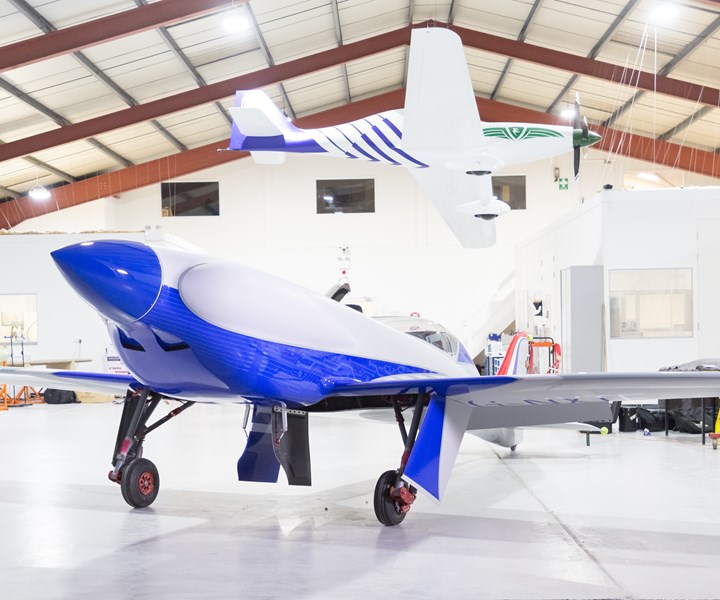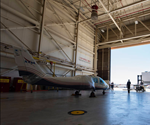Rolls-Royce targets world speed records with all-electric plane
The recently-unveiled all-electric, zero-emissions plane is part of Rolls-Royce’s strategy for accelerating electric aircraft development.

Source | Rolls-Royce
On Dec. 19, Rolls-Royce (Derby, U.K.) unveiled its all-electric plane, which the company is developing with the goal of breaking the record for world’s fastest aircraft. Work will now begin on integrating the electrical propulsion system to enable the zero-emissions plane to reach its target speed of 300+ miles per hour (480+ kilometers per hour) in late spring of this year.
The plane is part of a Rolls-Royce initiative called Accelerating the Electrification of Flight (ACCEL), and is a key part of Rolls-Royce’s strategy to promote electrification. The project involves a partners suh as electric motor and controller manufacturer YASA Ltd. (Oxford, U.K.) and the aviation start- up Electroflight (Staverton, U.K.). Half of the project’s funding is provided by the Aerospace Technology Institute (ATI; London, U.K.), in partnership with the U.K. Department for Business, Energy & Industrial Strategy and Innovate UK.
The ionBird test airframe, named after the electrical technology propelling the aircraft, was also unveiled. The ionBird will be used to test the propulsion system before it is fully integrated into the plane. Planned tests include running the propulsion system up to full power as well as key airworthiness checks.
According to Rolls-Royce, the ACCEL plane will have the most power-dense battery pack yet assembled for an aircraft, providing enough energy to fuel 250 homes or fly 200 miles on a single charge. Its 6,000 cells are packaged to minimize weight and maximize thermal protection, and its advanced cooling system is said to provide optimum performance by directly cooling cells during high-power record runs.
The propeller is driven by three high power density axial electric motors and, compared to a conventional plane, the propeller blades are said to spin at a far lower RPM to deliver a more stable and far quieter ride. Combined, they’ll continuously deliver more than 500 horsepower for the record run. Even during the record run, the all-electric powertrain is reported to power with 90% energy efficiency and zero emissions.
“This is not only an important step towards the world-record attempt but will also help to develop Rolls-Royce’s capabilities and ensure that we are at the forefront of developing technology that can play a fundamental role in enabling the transition to a low carbon global economy,” says Rob Watson, director of Rolls-Royce Electrical.
“The ATI is proud to partner with Rolls-Royce on the ACCEL programme because we believe it will lead to exciting new developments in electric propulsion. One of the priorities of the ATI is looking at how aviation can be more sustainable, and ACCEL will be a critical step in our understanding of how electric propulsion fits into that broader aspiration for the UK aerospace sector,” says Gary Elliott, CEO of the Aerospace Technology Institute. “We are also excited about the way it establishes a new and innovative supply chain, bringing together the best of the U.K. that includes cross-sector expertise, start-up energy and critical domain leadership.”
Related Content
-
TPI manufactures all-composite Kenworth SuperTruck 2 cab
Class 8 diesel truck, now with a 20% lighter cab, achieves 136% freight efficiency improvement.
-
TU Munich develops cuboidal conformable tanks using carbon fiber composites for increased hydrogen storage
Flat tank enabling standard platform for BEV and FCEV uses thermoplastic and thermoset composites, overwrapped skeleton design in pursuit of 25% more H2 storage.
-
Syensqo becomes new Solvay specialty materials company
Syensqo represents what was Solvay Composite Materials, focused on delivering disruptive material technologies and supporting growing customer needs.

.jpg;width=70;height=70;mode=crop)














